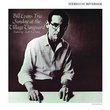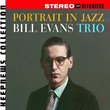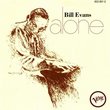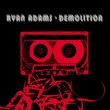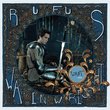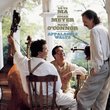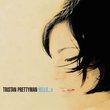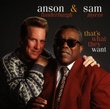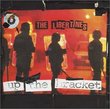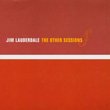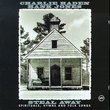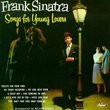| All Artists: Bill Evans Title: Waltz for Debby Members Wishing: 0 Total Copies: 0 Label: Ojc Original Release Date: 1/1/1961 Re-Release Date: 10/17/1990 Genres: Jazz, Pop Styles: Cool Jazz, Modern Postbebop, Bebop Number of Discs: 1 SwapaCD Credits: 1 Other Editions: Immortal Concerts: Waltz for Debby / Vlg Vanguard, Waltz for Debbie, Waltz for Debby UPC: 025218621021 |
Search - Bill Evans :: Waltz for Debby
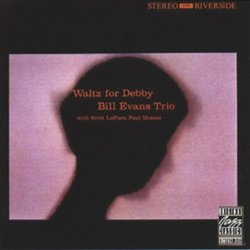 | Bill Evans Waltz for Debby Genres: Jazz, Pop
No Description Available. Genre: Jazz Music Media Format: Compact Disk Rating: Release Date: 10-AUG-1990 |
Larger Image |
CD DetailsSynopsis
Product Description No Description Available. Genre: Jazz Music Media Format: Compact Disk Rating: Release Date: 10-AUG-1990 Similar CDs
Similarly Requested CDs
|
CD ReviewsClassic Bill Evans = Classic jazz A reviewer | Seattle, WA USA | 12/13/1999 (5 out of 5 stars) "Nothing much need be said about this lovely CD. Contrary to what 'music fan from USA' says below, the music here deserves all of the praise it has received over the years. As an aside, Paul Motian is a sensitive drummer, with whom Evans chose to play on much of the classic Riverside recordings. As to the recording quality, while it may not be up to today's standards, the description given by 'music fan from San Francisco CA' shouldn't scare you off. The album was professionally recorded for release by Riverside and has a wonderful ambience and intimacy.Contrary to the comments from 'Mark from Chicago', the music bears little resemblence to free jazz. The amazing conversations between Evans and Scott LaFaro, with Motian in support, while complex, are equally cohesive and structured. Evans was a traditionalist in terms of repetoire and, while he takes these tunes to places new and interesting, he respects them utterly.If you're a jazz fan you either already have it, or should buy it immediately. If you're simply a music lover with an interest in jazz, you have a wonderful treat in store." The One and Only: Bill Evans and Trio M. Allen Greenbaum | California | 02/02/2001 (5 out of 5 stars) "A beautifully felt and executed album, by one of the best trios in jazz history. Is it too much to say that Evans "owns" My Foolish Heart?" I think not, just as he has applied his touch to produce other definitive version. His beautiful touch--soft, lyrical, sure but seeking, produce a floating, atmospheric sound that sets him apart from all other pianists.Evans can do no wrong, and his performances here are famous, even definitive, especially on "Porgy and Bess," "My Foolish Heart," and the absolutely wonderful "Waltz for Debbie." (Fans of the latter might want to check out the vocal of this song on "The Tony Bennett/Bill Evans Album", with lyrics by jazz critic and writer, Gene Lees. Bennett and Evans perform also the lovely ballad "Some Other Time," played beautifully on this album.) "Waltz for Debbie" also show how he can either float or swing you. I used to think of him as atmospheric and ruminative, but it's clear that Evans and the trio also produce energetic sounds that move you physically as well as emotionally. Evans soothes and surprises you at the same time. The trio (Scott Lafaro on bass and Paul Motian on drums) are perfectly sympatico-the sum is greater than the parts, which is saying quite a lot considering the individual talents here.. The trio is marvelously empathic, the drums and bass kicking it up when Evans does, following his lead, yet launching into their own discursions as well (hear what LaFaro does on "Waltz for Debbie," either take of "My Romance," and throughout). This is definitely not "free jazz," it is exquisite ensemble playing that coheres because of the individual contributions of each musician. Motian's delicate brushwork and shimmering cymbals add texture and color to every performance.One of the top jazz CDs, although it's difficult to select any single one from the Evans oeuvre (e.g., "Everybody Digs Bill Evans," "Sunday at the Village Vanguard," the many live performances). If you think there's no such thing as a natural high, listen to this album. Every CD is wonderful: If you have the bucks, by all means get the Evans box set!" Legendary and Utterly Timeless MikeG | England | 04/09/2004 (5 out of 5 stars) "'Waltz for Debby' was one of only four (official) albums made by what Evans fans know as "the first trio" - the one with Scott La Faro and Paul Motian. With 'Sunday at the Village Vanguard' it presents the legendary sessions recorded by the trio at the New York club in June 1961 shortly before La Faro's death in a car accident. Devoted Evans fans would regard both albums as essential. There's a 'complete' Village Vanguard 3-CD set available on the Japanese JVC Victor label. There are also two different CDs which offer selected tracks from the two original albums. In my opinion, the Italian 'Giants of Jazz' version titled 'Waltz for Debby/Village Vanguard' is a better selection than the Milestone label's `Live at the Village Vanguard', but it's difficult to get hold of and I don't know whether the re-mastering will be as good as on the originals. If you don't know either of the original albums and are cautious about investing in the "complete" edition, I would suggest that 'Waltz for Debby' is the one to buy first. (I should add that I know of three other Bill Evans CDs - two of them, confusingly, on the 'Giants of Jazz' label - which use 'Waltz for Debby' in the title. Don't mistake them for this one.) The music itself finds Evans in his more introspective, glowingly lyrical form on the slow pieces: "My Foolish Heart", "Detour Ahead", "Some Other Time" and "I Loves You Porgy". The first and last of these are especially moving. Evans's delicacy of touch and tone and his willingness to leave space between his phrases (rather than filling the space with unnecessary decoration, as a fussier pianist would) help to give the music a kind of floating, other-worldly quality which Wordsworth's definition of poetry - `emotion recollected in tranquillity' - aptly describes. "My Romance" and Evans's "Waltz for Debby" are similarly romantic, tuneful themes, and although they are faster, more overtly swinging numbers, Evans's improvisations are still in a warmly melodic, 'singing' style. The final track is a fascinating re-working of Miles Davis's famous theme, "Milestones" and, although it's the fastest track on the album, Evans's gentle touch and unhurried phrasing at this tempo give the piece a striking blend of intensity and relaxation. But the album is very much a group performance. The close rapport and the sense of collective improvisation which the trio aimed for are very strong in these Vanguard sessions, and both La Faro and Motian play with remarkable subtlety and insight. One of the immediately noticeable features of these Village Vanguard recordings, when you come upon them for the first time, is the constant 'club' background of chattering, laughing diners, tinkling glasses and cutlery, etc. At least once when you listen to the music you will probably wish that remastering technology could completely remove every extraneous noise and give us the music pure and unsullied. But for some fans (and for drummer Paul Motian, in a New Yorker article recalling the sessions forty years later) the background noise is part of the attraction of the music, locating it in a particular time and place - one Sunday afternoon and evening in 1961 in a New York jazz club - even if, in another sense, the music is utterly timeless. (Adam Gopnik's New Yorker article can be found online at the Bill Evans Web Pages site.)"
|

 Track Listings (10) - Disc #1
Track Listings (10) - Disc #1